Jersey Cow Raw A2 Milk – Is It Better Than Regular Milk?
We have all seen them: the commercials featuring happy people, dipping their favorite cookies into a tall glass of milk, and having a great time doing it. They smile. They laugh. They dip. They drink. Their enjoyment is infectious. It is enough to make you want to go in search of milk and cookies for yourself. For some people, drinking a glass of milk – with or without a cookie in hand – is not a pleasurable experience.
Individuals who are lactose intolerant or have other milk sensitivities have searched for solutions that would allow them to enjoy the same milky encounters as others. Lactose-free milk is not always a viable alternative. Now, there is another answer, one that is better than regular milk: A2 raw jersey cow milk.

Milk from Jersey Cow as Part of a Healthy Diet
People who experience digestive discomfort when consuming milk may be tempted to forgo including it in their diet.
While adult humans technically do not need dairy products to survive, there are several reasons why raw jersey cow’s milk should be included as part of a healthy diet. Dairy is included as part of the Dietary Guidelines for Americans from the U.S. Department of Agriculture.
What is Jersey milk? Raw Jersey Milk that is…
Raw jersey cow milk comes from the Jersey cow, a breed of cattle that makes milk high in butterfat. For more info on the breed, check out our article on Jersey Cattle.
Raw Jersey cow milk is packed with nutrients
Few whole foods share the nutritional profile of milk. One cup of whole cow’s milk contains 146 calories, 8 grams of protein, and 8 grams of fat. It also hosts seven vitamins and minerals the human body needs to flourish, including those labeled as nutrients of public concern.
| Calcium | 28 percent of the recommended daily allowance |
| Vitamin D | 24 percent of the recommended daily allowance |
| Riboflavin (B2) | 26 percent of the recommended daily allowance |
| Vitamin B12 | 18 percent of the recommended daily allowance |
| Potassium | 10 percent of the recommended daily allowance |
| Phosphorus | 22 percent of the recommended daily allowance |
| Selenium | 13 percent of the recommended daily allowance |
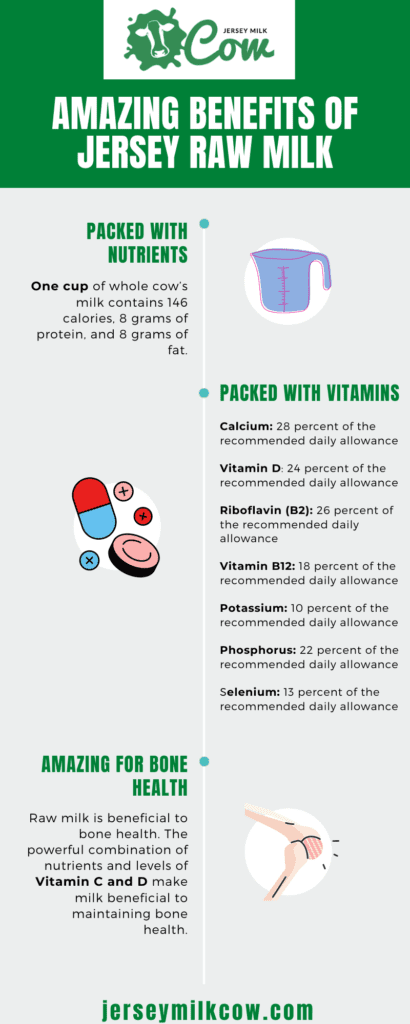
Raw Jersey cow milk is a great source of protein
Consuming adequate protein from quality sources is important for maintaining many vital functions in our bodies. Growth and development, cellular repair, and immune system regulation are among the functions dependent on protein. Nutritional guidelines suggest a daily intake of 0.36 grams of protein per pound of body weight.
Raw milk is beneficial to bone health.
The powerful combination of nutrients and levels of Vitamin C and D make milk beneficial to maintaining bone health. Your bones and teeth contain 99 percent of your body’s calcium stores. Raw milk and dairy consumption is linked to a lower risk for osteoporosis and bone fractures, especially in older adults.
Is it Lactose Intolerance or an A1 Beta-Casein Allergy?
It is understandable why some people assume they are lactose intolerant if they feel icky after drinking milk or eating other dairy products. If lactose is not the reason for the disagreeable relationship with milk, switching to a lactose-free version may not remedy the situation.
Some studies support the finding that it is the milk protein A1 beta-casein and not sugar lactose that is causing most of the gastrointestinal (GI) issues associated with dairy consumption. This includes abdominal pain and bloating, diarrhea, and gas.
If this is the case, then drinking milk from cows that naturally produce only A2 beta-casein is an option for reducing the painful digestive issues some people experience when consuming regular milk. Advances in Nutrition published a research review that suggests it takes less time to digest A2 milk than varieties containing both A1 and A2 beta-caseins. The study concludes that speeding up the digestion process may help reduce gastrointestinal inflammation and other GI issues.
Scientists suggest that at one time, all cows only produced A2 milk and that the A1 beta-casein protein is a genetic mutation. Today, there are certain breeds that produce only A2 milk, with others giving the A1/A2 combination.
Regular Milk vs. A2 Milk vs. Lactose-Free Milk
If you are among the 65 percent of the human population unable to properly digest lactose after infancy, you likely have explored other options. Currently on the market is a variety of alternatives to traditional milk, including versions made from almonds, rice, coconuts, and even hemp. These options are usually pricey, and some people do not find them particularly palatable.
Most consumers are more familiar with products labeled lactose-free. It is important to understand the differences between regular milk, A2 milk, and lactose-free milk.
Here is a quick breakdown of the differences between the three:
- Regular milk is what is most commonly found on store shelves, and contains both A1 and A2 beta-casein proteins. It comes in full-fat and reduced-fat varieties. It comes from Holstein, Friesian, Ayrshire, and British Shorthorn cows, which naturally produce both A1 and A2 beta-caseins in their milk.
- A2 milk has always been around. However, the brand of A2 milk was first introduced to the market in 2000 by a New Zeland company and is similar in appearance and flavor to regular milk. Unlike regular milk, it is lacking in A1 beta-casein proteins. A2 milk comes from cows that are bred to specifically produce only A2 beta-caseins, such as Jersey, Guernsey, and Normande cows.
- Lactose-free milk contains both A1 and A1 beta-casein proteins. Lactase is added to this variety of milk in an attempt to help with the pre-digestion of lactose, making it more tolerable. Some people with lactose intolerance or other milk allergies still suffer from the unpleasant side effects of drinking lactose-free milk.
When it comes to a comparison of regular vs. A2 vs. lactose-free milk, individuals with digestive issues may want to consider trying A2. There is evidence to support a lessening of the common symptoms associated with milk intolerance in individuals who drank Raw A2 milk compared with the other two options.
Many people who are sensitive to regular milk are unable to enjoy other milk products like ice cream. Making the switch to A2 milk opens the door to a whole new world of dairy products that are easily digestible and taste great. A2 milk also is used to make ice creams, cottage cheese, artisan block cheese, and yogurt.
Future of A2 Milk From Jersey Cows
A2 milk from Jersey cows is fairly common in Australia and New Zealand, with most dairy farmers raising only cattle known to exclusively produce the A2 beta-casein protein. About 65 percent of all A2 milk in these countries is produced by Jersey cows. Consumers there have supported this genetically-specific market for nearly 20 years. Other European countries also have embraced A2 milk from Jersey cows, making it widely available to consumers.
North America is a little behind the times in the A2 milk market, but slowly is beginning to realize its many benefits. More than 6,000 retailers in the U.S. including Walmart, Wegmans, Whole Foods, Sprouts, Target, Publix, and Safeway now offer the A2-genetic milk and more dairy farmers are making the switch to Jersey cows to help produce it. A2 milk from Jersey milk cows has many benefits.
- Low-fat versions taste identical to whole milk due to the higher solids content, yet are still lower in fat than traditional milk
- It contains more Vitamin A and Vitamin B1 per liter than Holstein milk
- It contains 18 percent more protein, 20 percent more calcium, and 25 percent more butterfat than Holstein milk
A recent report from Fior Markets predicts the global A2 milk market is anticipated to grow to 21.39 billion by 2026 as more individuals suffering from milk sensitivities begin to explore A2 as an option. While A2 milk still may be seen as a niche market in the U.S. for now, as awareness about its benefits continues to grow, some dairy farmers are predicting it will be the milk of the future.
In our kitchen, we only use cultures from Cultures for Health.
Get yours here and start culturing today.
Popular Articles
Newsletter
Get signed up to get latest updates and new information from the Jersey Milk Cow!
Comments (9)
Leave a Reply to Kelsey Cancel reply
This site uses Akismet to reduce spam. Learn how your comment data is processed.

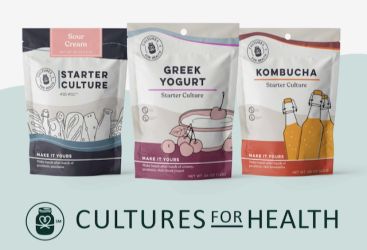
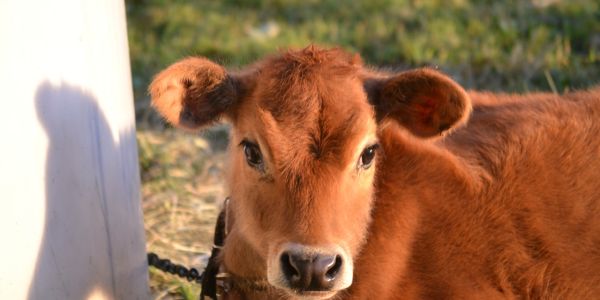

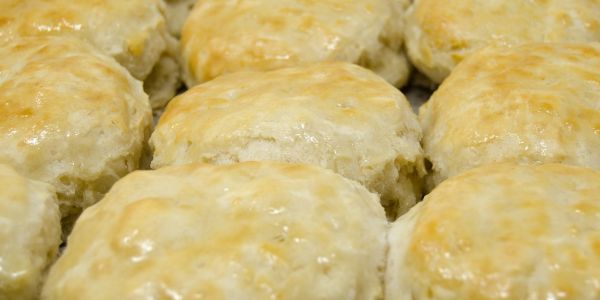
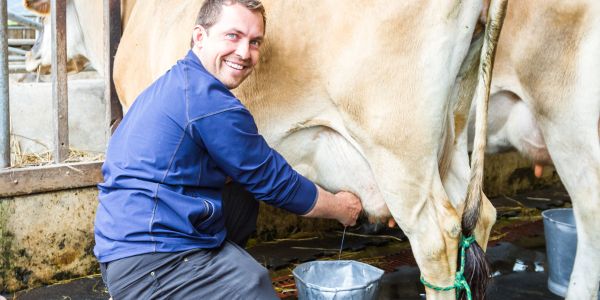
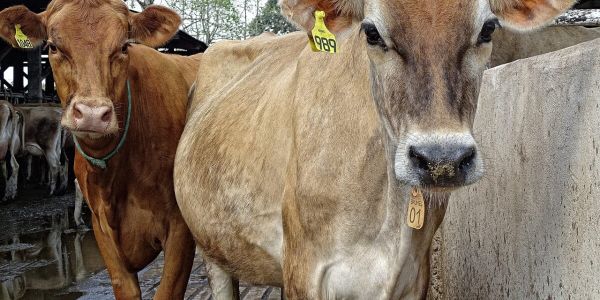

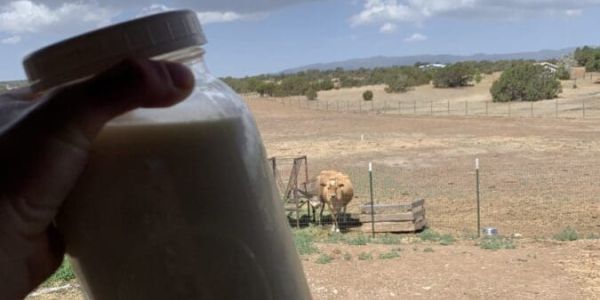


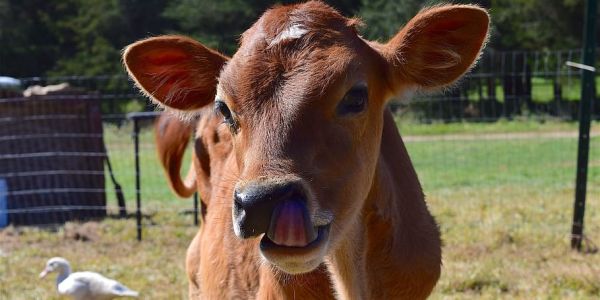
Hi Kelsey
That is great info.
I have a question I have two Jersey milk cows do you know where I can get a test kit to see if my Jerseys gie a2 milk ?
Thank You
Jerry Kawasaki
Hi Jerry! Sorry for the late reply. There are many places that can tell you weather your Jersey Cow produces A2 milk. Central Star is one and the other is UC Davis. I’ve also heard that if you register your Jersey cow with the Jersey Association, they will to the testing at a more affordable rate and the data will go into the cows registry. Hope this helps!
Just found this site while researching which to get, Jersey or Guernsey.
There seem to be good arguments for both.
I am leaning more towards the Guernsey because of their subsistence on grass and hay only without a drop in milk production.
Have not purchased either yet, I like to do plenty of research before I just jump.
Any help would be greatly appreciated.
Hi Sam! Sorry for the late reply. The short answer, is if you get either, you can’t go wrong. At the end of the day, both Jersey and Guernsey cows are the best you can get. I will say that the Jersey is better suited for smaller homes and homestead just due to their size. They are are smaller than Guernseys. Have fun no matter which cow you get!
Hey
i am really struggling to find a2 milk in france. do you know anywhere you can buy jersey or guernesy milk in France please?
Hey, you can find Raw Jersey Milk from the brand Bernard Gaborit. I buy them from the supermarket Biocoop and it tastes good 🙂
Good day Kelsey,
I’m Dereck and I work for Jersey Canada up here in Guelph, Ontario. It’s great to hear of someone who is such a Jersey buff. I found your article very interesting and would like to talk to you about writing for our magazine.
Thank you so much for sharing your storing and creating this labor of love to share knowledge. God’s ways are truly above our ways. That He can heal you with the work of his hands brought tears to my eyes. God bless you in this ministry. I learned so much about the nutrient density in raw milk from this page. When people compare milk to nut and grain slurries, they compare dead milk to the alternatives. In light of the information you have provided, this is truly an unfair way to analyze the differences.
Thank you for your comment Holly! And I agree with you whole heartedly!